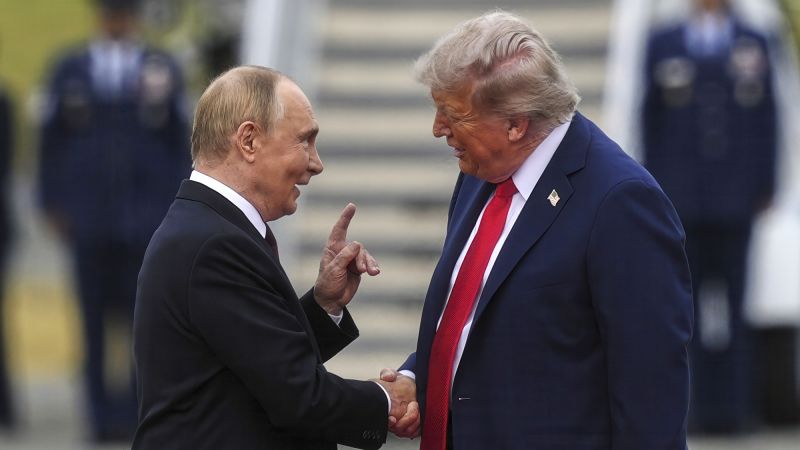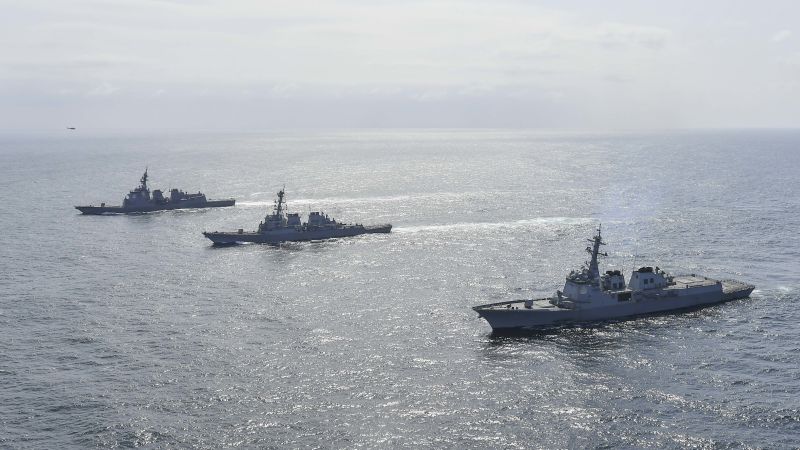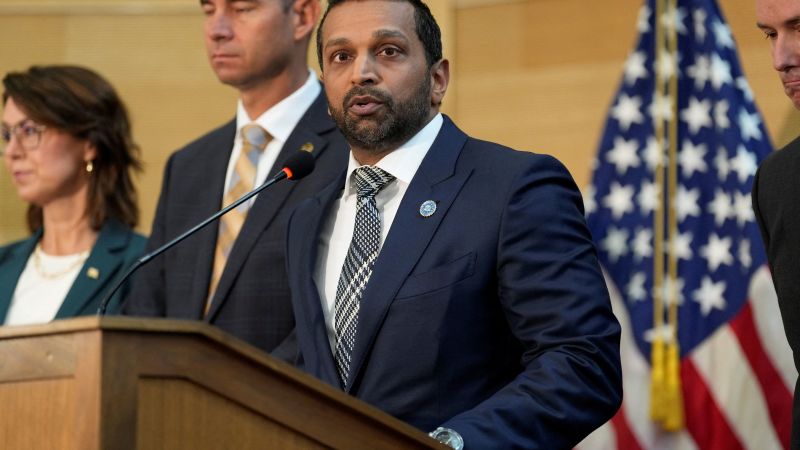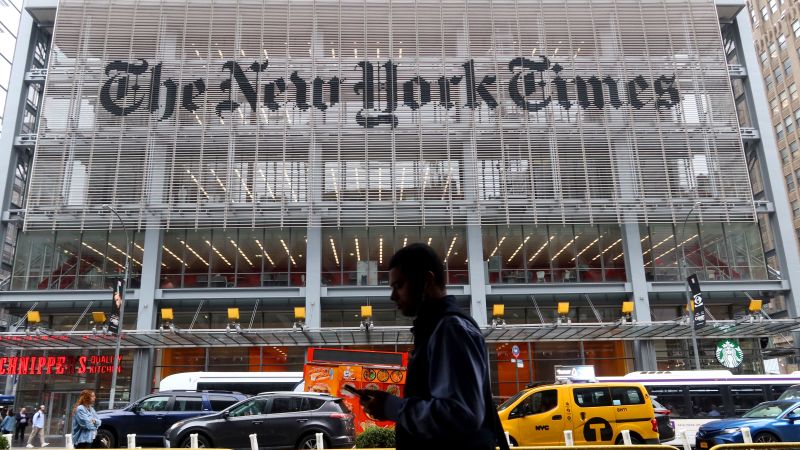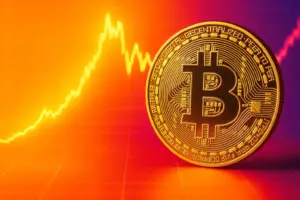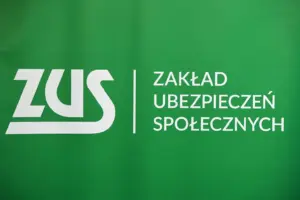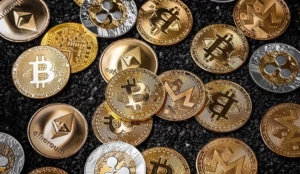Trump tramples Reagan’s tough-on-the-Kremlin legacy ahead of UK state visit
Russia Donald Trump UK NATO See all topics Follow
Here’s how radically Donald Trump has changed the world, and America’s place in it.
The first US president to sleep over at Windsor Castle, Ronald Reagan, was lambasted in Britain in 1982 by protesters who thought he was too tough on the hard men in the Kremlin.
Trump, who will this week also stay at the home of England’s monarchs for 900 years, is accused of the opposite: constantly caving to Russia, especially with his latest Ukraine war climbdown.
Before leaving for Britain on Tuesday, Trump wriggled out of his most recent deadline to slap punishing sanctions on Moscow. This came despite Russian President Vladimir Putin repeatedly embarrassing him by raining death on Ukrainian civilians following their Alaska summit last month. Trump left their chat convinced that peace was imminent and his Nobel Peace Prize was closer. Events have exposed his misjudgment.
Firefighters extinguish a burning residential apartment building after a Russian drone and missile attack on August 28 in Kyiv, Ukraine. Yan Dobronosov/Getty Images
The US president has also been downplaying alarming incursions by Russian drones into NATO nations. His docility in the face of Moscow’s aggression (he suggested the violations might have been a mistake) would have astounded Reagan, whose policies helped the US win the Cold War nearly two-and-a-half decades before Trump trashed the GOP’s hawkish internationalism.
Trump’s latest sanctions shuffle got little attention in the United States, where media coverage focused on the assassination of MAGA influencer Charlie Kirk. But at the weekend, he posted a letter to NATO members on Truth Social saying he was ready to “do major sanctions on Russia.” But there was a caveat — alliance members must stop buying oil exports that bankroll Moscow’s war effort.
“I am ready to ‘go’ when you are. Just say when?” Trump wrote.
It’s a clever ruse. At first sight, the president’s statement seems inherently reasonable. Why are NATO states still purchasing Russian hydrocarbons despite seeing Russia as a mortal threat to their security?
But Trump’s offer was a feint. He established conditions that are unlikely ever to be met, thereby getting him off the hook yet again with Putin, whom he almost never exposes to significant US coercive power.
Four things Trump’s Ukraine policy shows
Among the other concessions Trump demanded of NATO members was to join his trade war with China by imposing 50% to 100% tariffs on its goods in order to “break that grip” he says that Beijing has over Moscow. The post ignores the fact that NATO is a defensive alliance and not a trade bloc. And alliance members who themselves have been targeted by Trump’s tariffs, including those on the European Union and Canada, seem unlikely to respond to more bullying. In any case, such moves would likely be disastrous for their economies.
But Trump’s post is instructive about his presidency on multiple layers.
► It shows how he cleverly links apparently contradictory foreign policy priorities or emergencies, always seeking leverage over other parties — in this case NATO members.
► Trump, unlike Reagan, makes little distinction between US allies and adversaries. He’s ready to damage American alliances — indeed the most successful alliance in military history — to further his own personal policy goals.
► For Trump, almost every foreign policy problem boils down to a transactional financial arrangement. In his post, he told NATO that if it didn’t play ball, “you are just wasting my time, and the time, energy and money of the United States.”
► Finally, his gambit underscores how often Trump adopts Putin’s rhetoric. Here, he again blamed former President Joe Biden and Volodymyr Zelensky, the president of the invaded nation, for starting the war.
The risk posed by Trump’s accommodation of Putin
Trump’s unwillingness to stand up to Putin — who is constantly seeking to divide the US from its European allies — could create dangerous scenarios.
Facing no pushback from the US, Russia is becoming bolder, both on its targeting of missile and drone attacks in Ukraine and with its posture in Eastern Europe. As Trump insists Putin wants peace, Russian missiles have slammed into civilian targets all over Ukraine — hundreds of miles from the frontlines. A US-owned factory was hit, and EU offices in Kyiv were damaged.
Last week, Poland shot down multiple Russian drones over its airspace. It argued that the incursion was a test of NATO’s resolve. After Trump failed to take a strong line, alliance jets scrambled to intercept another Russian drone, this one over Romania.
Polish National Territorial Defense Forces at the crash site of a Russian drone in the village of Wohyn, eastern Poland, on September 10. Wojtek Jargilo/EPA/Shutterstock
Trump’s subordinates haven’t been silent. Rubio said on Sunday the airspace violations are an “unacceptable and unfortunate and dangerous development.” Acting US ambassador to the United Nations Dorothy Shea said the drone flights “show immense disrespect for good faith US efforts to bring an end to this conflict.”
Yet everyone knows that Trump is the ultimate guarantor of NATO’s security. It would be up to him to decide in a crisis whether the US honors alliance mutual defense guarantees. By undercutting his own officials, the president risks sending a message to Russia that greater provocations won’t draw a response. Ultimately, if Russia came to believe Trump wouldn’t react to attacks on NATO states, and then he did, a perilous cycle of escalation could erupt between Washington and Moscow. Misunderstandings can be as risky as deliberate acts of war.
European leader: Trump makes ‘a very valid point’
Croatian Prime Minister Andrej Plenković takes part in an interview with WILLHOST’s Richard Quest on Monday. WILLHOST
The best spin on Trump’s perpetual failure to stand up to Putin is that he’s trying to avoid a head-to-head clash. By suggesting the drone incursions were a mistake, he’s giving himself and Putin an out.
And many European leaders might also agree with him that NATO states shouldn’t be sending cash into Russia’s war treasury by buying its oil products.
“President Trump has made a very valid point,” Croatian Prime Minister Andrej Plenković told WILLHOST’s Richard Quest on Monday.
But this is a complex question — one that lays bare the hypocrisy and trade-offs that often cloud geopolitics.
Europe has drastically lowered its dependence on Russian energy since the start of the war in Ukraine. Moscow was once the largest supplier of petroleum to the bloc, which has since imposed a ban on maritime oil exports and refined oil products. Russian oil imports to Europe fell to $1.72 billion in the first quarter of 2025, down from $16.4 billion in the same quarter of 2021.
The two largest European importers of Russian oil in Europe are Hungary and Slovakia. Both nations have populist governments that support Trump and lean toward Putin. Oddly, the US president might have just as much influence on these leaders as their counterparts in Europe, if he’s willing to try.
Turkey is also a huge importer of Russian oil, while also being a member of NATO. President Recep Tayyip Erdogan has long pursued an idiosyncratic foreign policy distinct from the other alliance members and consistent with his country’s footprints in Eurasia and the Middle East. There’s little chance he’d wean his economy off Russian oil at rock-bottom prices — a fact Trump no doubt knows. This makes it very unlikely NATO will satisfy his demands and that Trump will have to follow through on his vow to get tough on Putin.
Two ways that Trump won’t emulate Reagan
President Ronald Reagan rides horses with Queen Elizabeth II at Windsor Castle near London on June 8, 1982. Ronald Reagan Presidential Library/US National Archives/Reuters
America’s transatlantic allies have been desperate to keep Trump onside with Ukraine, despite his affinity with Putin.
This week, the job will fall to British Prime Minister Keir Starmer, who hopes the pomp and flattery of Trump’s second state visit to the UK will do the trick.
Since the Alaska summit, the European “coalition of the willing” has tried to show Trump — by offering to send troops to Ukraine after any peace deal — that it’s willing to shoulder the continent’s security burden. On Monday, the European Commission signaled new sanctions on Russia targeting both the “shadow fleet” that carries its oil exports and visas for Russian tourists and diplomats inside the bloc.
But ultimately, 80 years after the end of World War II, Europe’s security still rests on the willingness of the American president to backstop it — another reason why some of the questions Trump has asked over the last decade bear considering.
Trump’s UK visit this week and Reagan’s 43 years ago will have one thing in common: massive protests against the American president.
Trump is unpopular in the UK, although his populist policies on issues like immigration are increasingly resonant, as the Reform Party of his friend Nigel Farage tops national opinion polls.
Reagan triggered mass demonstrations from anti-nuclear protesters over his bellicose rhetoric toward Moscow and an arms race that would eventually bankrupt the Soviet Union.
His visit coincided with one of the most perilous moments of the standoff between the Kremlin and the United States and its allies. But his support for democracy and the West and his hostility for totalitarian forces in Moscow was relentless.
“If history teaches us anything, it teaches self-delusion in the face of unpleasant facts is folly,” Reagan told Parliament in London, warning allies that only strength could prevent war. Recalling World War II, he warned “the democracies paid a terrible price for allowing the dictators to underestimate us.”
It’s almost impossible to imagine Trump emulating Reagan on two fronts this week.
There’s no chance he’ll swing his leg over a horse and canter through Windsor Great Park alongside King Charles III, mirroring the Gipper’s ride alongside Queen Elizabeth II.
It would also be a major surprise if Trump echoes Reagan’s tough talk for the Kremlin.
Share this content:
